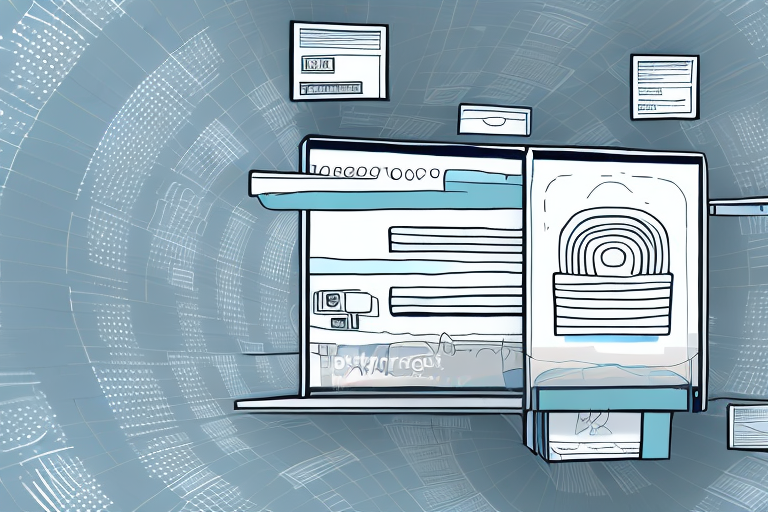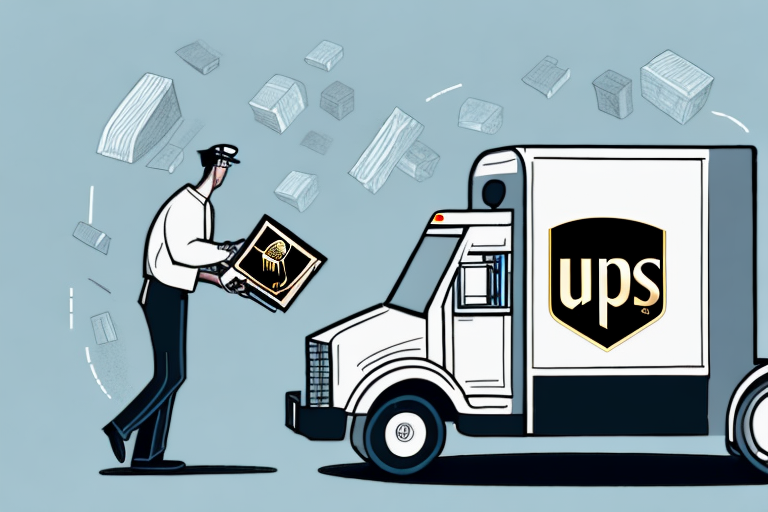What Does Origin Scan Mean? A Comprehensive Guide
Have you ever tracked a package online and come across the term “origin scan”? Understanding what an origin scan entails is crucial for both senders and recipients in the shipping and logistics process. In this comprehensive guide, we will delve into the fundamentals of origin scanning, its significance in shipping and logistics, its role in the e-commerce industry, and much more. Let’s explore the intricacies of origin scans and how they enhance the shipping experience.
Understanding Origin Scans
Basics of Origin Scan
An origin scan is the initial scan that occurs when a package is dispatched from the sender’s location. This scan captures essential information such as the package’s tracking number, sender’s address, and shipping label. This data is then uploaded to the shipping carrier’s system, enabling the tracking of the package throughout its journey. The origin scan serves as the first point of reference in monitoring the package’s movement, providing visibility into its current status and location.
How Origin Scanning Works
When a package undergoes an origin scan, the scanner records the package’s tracking number and other pertinent details. This information is transmitted to the carrier’s tracking system via wireless or wired connections. The system then assigns the package to a specific delivery route, initiating its journey through various logistics hubs and transit points. Each subsequent scan along the way updates the package’s status in real time, allowing both the sender and the recipient to monitor its progress.
Differentiating Origin and Destination Scans
While an origin scan occurs when the package leaves the sender’s location, a destination scan is performed upon the package’s arrival at the recipient’s address. Destination scans confirm delivery and provide proof of receipt. In addition to these primary scans, intermediate scans may occur at various transit points, offering updates on the package’s journey. Understanding the difference between origin and destination scans is essential for accurate package tracking and management.
Importance of Origin Scans in Shipping and Logistics
Benefits for Carriers
Origin scans are vital for shipping carriers as they establish the first link in the supply chain. By capturing accurate initial data, carriers can efficiently manage package routing and scheduling. Origin scans help in identifying and rectifying issues such as mislabeled addresses or incorrect package weights early in the process, minimizing delays and ensuring timely deliveries. According to a study by the International Journal of Logistics Management, accurate scanning at origin points can reduce delivery times by up to 15%.
Benefits for Consumers
For consumers, origin scans offer peace of mind by providing real-time tracking information. Knowing the exact location and status of a package allows recipients to anticipate delivery dates, plan accordingly, and take necessary actions if issues arise. Origin scans also facilitate proactive communication with customer service, enhancing overall customer satisfaction.
Origin Scans in the E-commerce Industry
The e-commerce industry relies heavily on efficient shipping and logistics to meet consumer demands for quick and reliable delivery. Origin scans play a pivotal role in this ecosystem by ensuring package visibility from the moment of shipment. Major e-commerce platforms like Amazon and Walmart utilize advanced origin scanning technologies to manage the high volume of shipments, reducing the risk of lost or delayed packages and enhancing the overall shopping experience.
Common Misconceptions about Origin Scans
Origin Scans Guarantee Delivery
A prevalent misconception is that an origin scan ensures the package will be delivered without issues. While origin scans are crucial for tracking, they do not guarantee delivery. Packages can still encounter problems such as damage, theft, or misrouting despite a successful origin scan.
Real-Time Origin Scanning
Another common misunderstanding is that origin scans are always performed in real time. In reality, there may be delays between the scan and the update being reflected in the tracking system, depending on the carrier’s infrastructure and technology.
Tracking and Troubleshooting with Origin Scans
Benefits of Tracking Your Shipment
Tracking a shipment through origin scans offers numerous benefits, including estimated delivery dates, real-time updates, and enhanced security. It allows consumers to monitor their packages closely, ensuring they are aware of any potential delays or issues early in the shipping process.
What to Expect After an Origin Scan
After an origin scan, the package progresses through various transit points, each marked by additional scans. Depending on the carrier, updates may be available within hours, providing insights into the package’s journey. It’s essential to regularly check tracking information to stay informed about the package’s status.
Troubleshooting Common Issues
Despite robust scanning systems, issues such as missed scans, incorrect tracking information, or lost packages can occur. In such cases, contacting the carrier’s customer service is advisable to resolve the problem. Most carriers offer dedicated support to address tracking discrepancies and provide updated delivery information.
Best Practices for Successful Origin Scanning
Top Tips for Effective Origin Scanning
- Clear Labeling: Ensure that all packages are labeled accurately with clear addresses and correct postage.
- Quality Packaging: Use durable packaging materials to protect the contents during transit.
- Accurate Information: Double-check all shipment details to prevent errors at the origin scan.
How to Read and Interpret Origin Scan Reports
Interpreting origin scan reports involves understanding the tracking information provided by carriers. Typically, these reports include the tracking number, scan date and time, scan location, and the current status of the package. Familiarizing yourself with the carrier’s tracking system can enhance your ability to monitor shipments effectively.
The Future of Origin Scanning: Advancements and Innovations
With the continuous growth of e-commerce and advancements in technology, origin scanning is evolving rapidly. Innovations such as artificial intelligence, automated sorting systems, and enhanced wireless technologies are improving the accuracy and efficiency of origin scans. According to a report by McKinsey & Company, the adoption of AI in logistics is expected to boost package handling efficiency by over 20% by 2025.
These technological advancements promise a more seamless and transparent shipping experience, reducing errors and enhancing customer satisfaction.
Conclusion
Origin scans are a fundamental component of the shipping and logistics process, providing essential tracking information from the moment a package is dispatched. By understanding the basics of origin scanning, its importance in logistics, its role in the e-commerce sector, and the common misconceptions surrounding it, both shippers and consumers can better navigate the complexities of package delivery. Embracing best practices and staying informed about technological advancements will ensure a smoother shipping experience and higher levels of customer satisfaction.



















